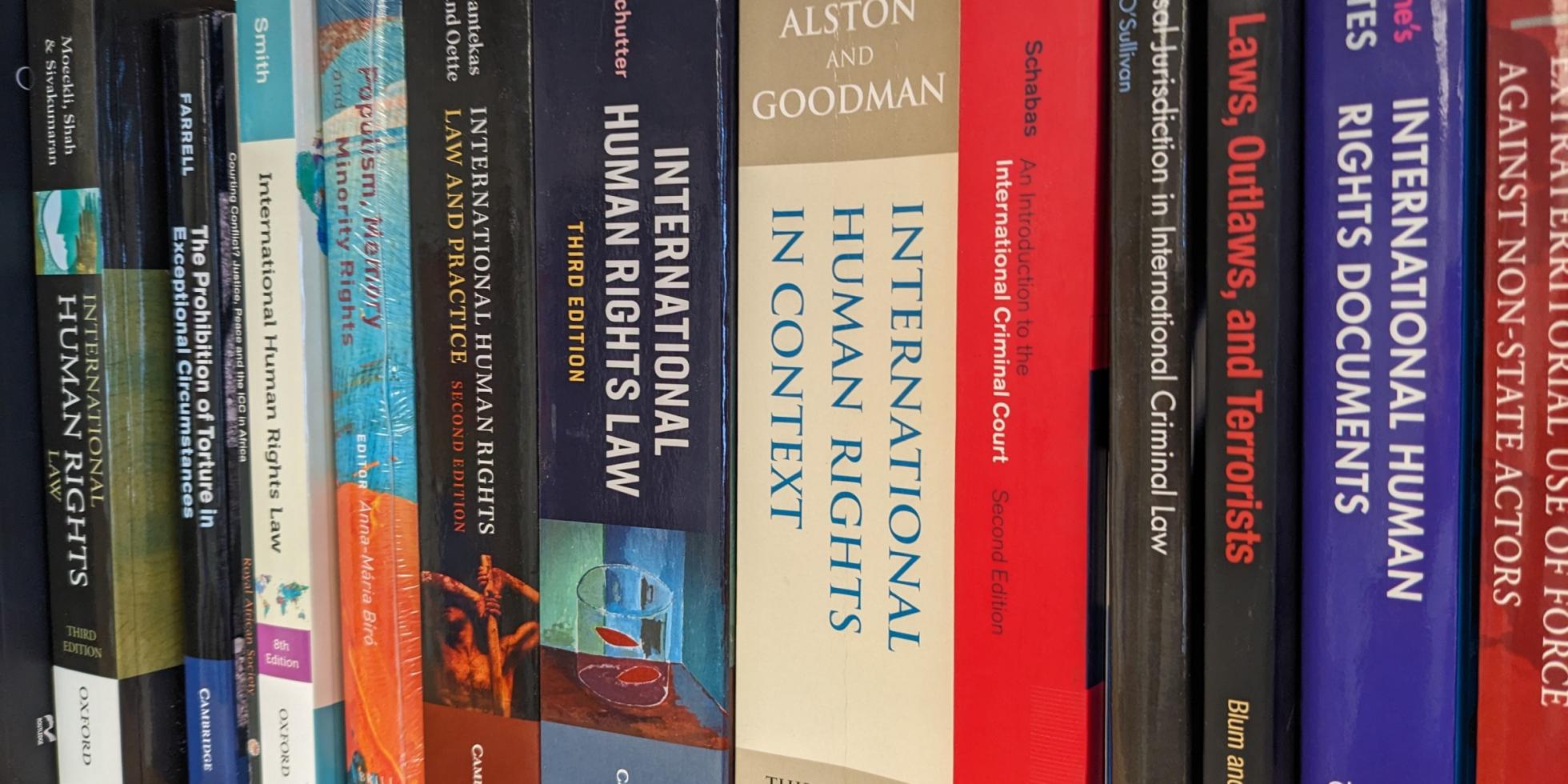The virtual human rights library brings together resources from multiple libraries and information services, both internal and external, to create an online hub dedicated to the study of human rights. This curation is unique in its interdisciplinary concerns and focuses on writings and research from social sciences, humanities, and law.
The virtual library is continually updated with the latest academic research in issue areas, as well as with relevant films, recorded conversations, and other forms of media.
Please Note:
The Virtual Library is usable by all visitors, but the hyperlinks to materials listed are for UChicago community members with a CNet ID and password.
Please direct feedback and suggestions to Kathleen Cavanaugh.
For technical assistance, email pozenhumanrights @ uchicago.edu.
Searchable Database
Click into the dropdowns to select the disciplines, keywords, and media type for your search, and then hit "Apply."
"Forced migration, human trafficking, and human security."
This article situates forced migration amid intersections of burgeoning human insecurities that force increasing numbers of people to leave their homes and become susceptible to exploitation. Drawing upon data on trafficking in Pakistan, the author argues that marginalized groups often...
"Framing the Fat Body: Contested Meanings between Government, Activists, and Industry."
Sociologists have long recognized that social problems do not derive solely from objective conditions but from a process of collective definition. At the core of some social issues are framing competitions, struggles over the production of ideas and meanings. This...
"From bioethics to a sociology of bio-knowledge."
Growing recognitio+G61n of bioethics' shortcomings, associated in large part with its heavy reliance on abstract principles, or so-called principlism, has led many scholars to propose that the field should be reformed or reconceptualised. Principlism is seen to de-contextualise the process...
"From Cold War Instrument to Supreme European Court: The European Court of Human Rights at the Crossroads of International and National Law and Politics."
The history of the genesis and institutionalization of the European Convention on Human Rights offers a striking account of the innovation of a new legal subject and practice—European human rights—that went along with, but also beyond, the political and legal...
"From Health to Human Rights: Female Genital Cutting and the Politics of Intervention"
The international campaign to eliminate female genital cutting (FGC) has, since the early 1990s, actively attempted to divorce itself from a health framework, adopting instead a human rights framework to justify intervention. Several key questions emerge regarding the prominent placement...
"From political opportunities to niche-openings: the dilemmas of mobilizing for immigrant rights in inhospitable environments."
This article examines how undocumented immigrants mobilize for greater rights in inhospitable political and discursive environments. We would expect that such environments would dissuade this particularly vulnerable group of immigrants from mobilizing in high profile campaigns because such campaigns would...
"From Skepticism to Embrace: Human Rights and the American Anthropological Association from 1947-1999."
This article questions the characterization of the 1999 Declaration as a complete turnaround by studying the role that the 1947 Statement has played in the development of anthropological views on human rights. In particular, it takes a diachronic look at...
"From Slavery to Mass Incarceration"
The fate of US blacks, from the time of Jefferson to that of Reagan and Clinton, trapped within four successive ‘peculiar institutions’, under a sociological spotlight. The origins of American racism and its outcomes in today’s hyperghetto and prison regimes.
"From the human to the planetary: Speculative futures of care"
This is largely a theoretical, speculative essay that takes on the question of what ‘care’ looks like at a moment when climate change is increasingly taking center stage in public and political discussions. Starting with two new practices, namely, humanitarian...
"From Virtual Public Spheres to Global Justice: A Critical Theory of Internetworked Social Movements."
From the early 1990s when the EZLN (the Zapatistas), led by Subcommandte Marcos, first made use of the Internet to the late 1990s with the defeat of the Multilateral Agreement on Trade and Investment and the anti‐WTO protests in Seattle...

